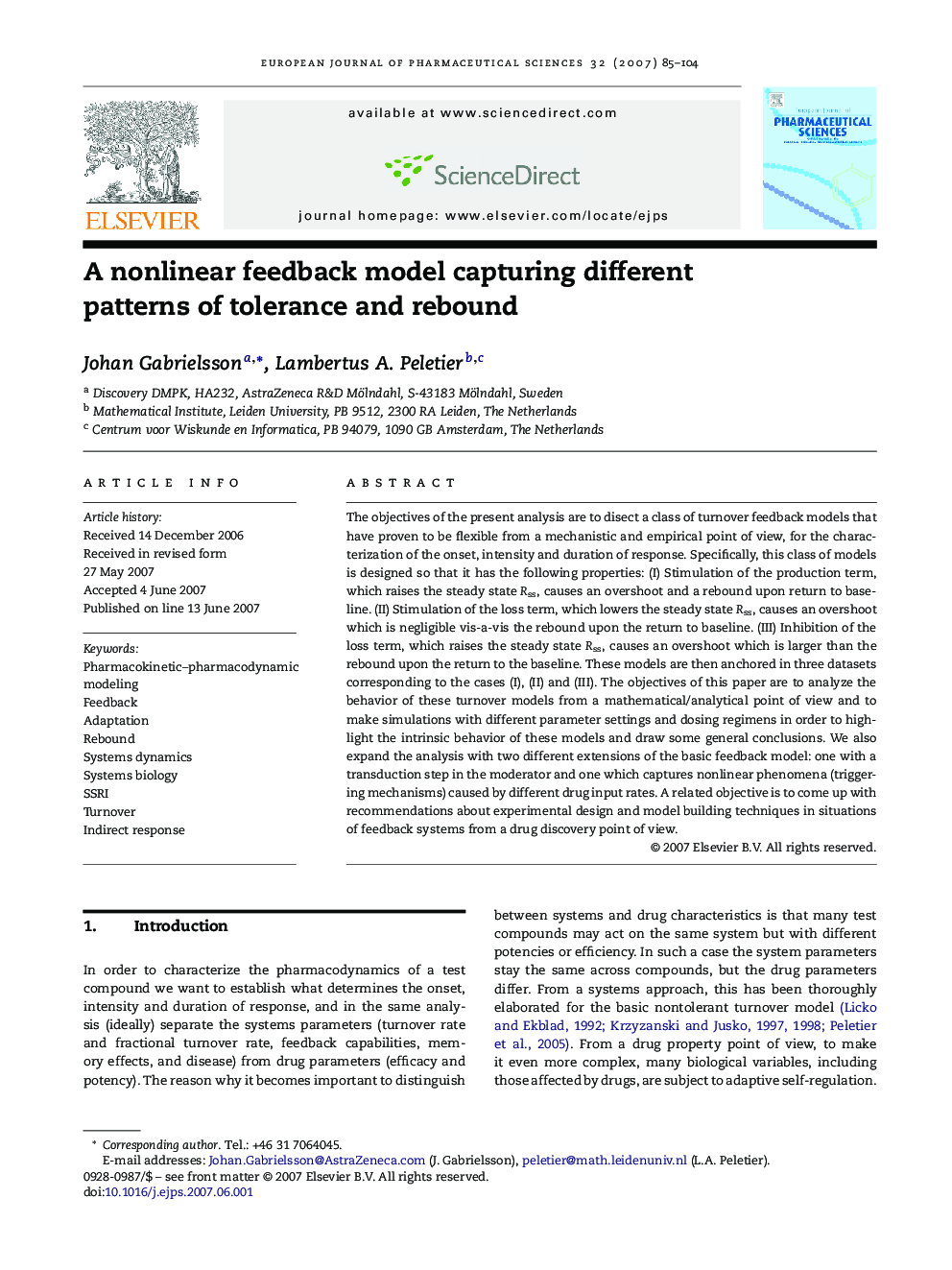| Article ID | Journal | Published Year | Pages | File Type |
|---|---|---|---|---|
| 2482429 | European Journal of Pharmaceutical Sciences | 2007 | 20 Pages |
Abstract
The objectives of the present analysis are to disect a class of turnover feedback models that have proven to be flexible from a mechanistic and empirical point of view, for the characterization of the onset, intensity and duration of response. Specifically, this class of models is designed so that it has the following properties: (I) Stimulation of the production term, which raises the steady state Rss, causes an overshoot and a rebound upon return to baseline. (II) Stimulation of the loss term, which lowers the steady state Rss, causes an overshoot which is negligible vis-a-vis the rebound upon the return to baseline. (III) Inhibition of the loss term, which raises the steady state Rss, causes an overshoot which is larger than the rebound upon the return to the baseline. These models are then anchored in three datasets corresponding to the cases (I), (II) and (III). The objectives of this paper are to analyze the behavior of these turnover models from a mathematical/analytical point of view and to make simulations with different parameter settings and dosing regimens in order to highlight the intrinsic behavior of these models and draw some general conclusions. We also expand the analysis with two different extensions of the basic feedback model: one with a transduction step in the moderator and one which captures nonlinear phenomena (triggering mechanisms) caused by different drug input rates. A related objective is to come up with recommendations about experimental design and model building techniques in situations of feedback systems from a drug discovery point of view.
Keywords
Related Topics
Health Sciences
Pharmacology, Toxicology and Pharmaceutical Science
Drug Discovery
Authors
Johan Gabrielsson, Lambertus A. Peletier,
